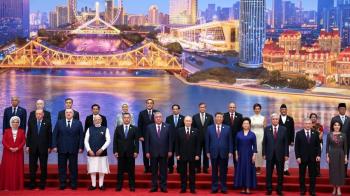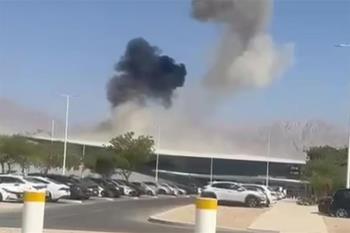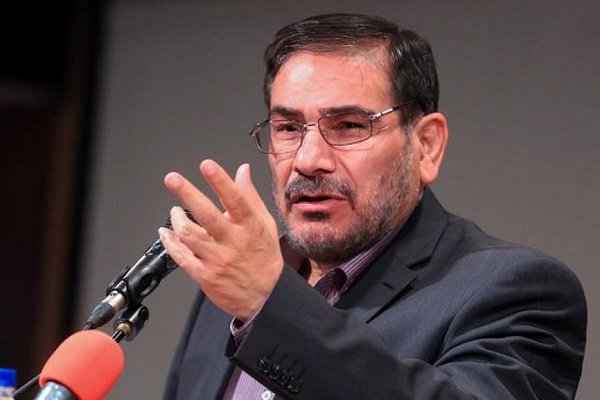Alwaght- The Islamic Republic of Iran will punish the Israeli regime for the recent airstrikes on Syria that killed over a dozen people, including seven Iranian military advisors.
Speaking on Tuesday in Tehran, Secretary of Iran's Supreme National Security Council (SNSC) Ali Shamkhani said that the punishment of the aggressor is certain but the Islamic Republic would decide on the time, place and way of giving a response to this "act of evil".
"When a regime assumes the right to violate another country's airspace in a planned move and also target forces fighting against terrorism, it should have definitely considered its consequences and retaliatory reactions," he said.
Speaking to reporters before departing for an international security conference in Russia’s Sochi, Shamkhani noted that, "The Islamic Republic of Iran has paid a considerable price in order to establish regional stability and fight against Takfiri terrorism. Therefore, it cannot remain indifferent to the worrying increase of destabilizing measures by the US, the Zionist regime (Israel) and some of their regional allies."
He once again reiterated that the Iranian military advisors are present in Syria upon a request by the Arab country's government with the purpose of countering the threat of terrorism and playing a decisive role in defeating terrorist groups in the region.
Withdrawal from NPT
On the nuclear issues, Shamkhani said the Islamic Republic will withdraw from the Non-Proliferation Treaty (NPT) if its interests are threatened.
"The NPT acknowledges the right for all its member states to leave the treaty if their interests are endangered,” Shamkhani told reporters in Tehran on Tuesday when asked whether Iran would leave the NPT in response to US President Donald Trump’s future measures against the 2015 nuclear deal between Tehran and world powers.
"The main purpose of developing and implementing legal mechanisms and international contracts is creating stability and security in the international community and preventing ostensibly powerful countries from making unilateral moves,” he added.
Article X of the NPT provides a “right” to withdraw from the treaty if the withdrawing party “decides that extraordinary events, related to the subject matter of this treaty, have jeopardized the supreme interests of its country.”
Trump in January set a 120-day deadline for US lawmakers and European allies to “fix” his predecessor Barack Obama's main foreign policy achievement or face a US exit.
Since the landmark deal was reached between Tehran and the Group 5+1 (Russia, China, the US, Britain, France and Germany) in Vienna in July 2015, the International Atomic Energy Agency (IAEA) has repeatedly confirmed the Islamic Republic’s compliance with its commitments under the JCPOA (Joint Comprehensive Plan of Action), but some other parties, especially the US, have failed to live up to their obligations.



























